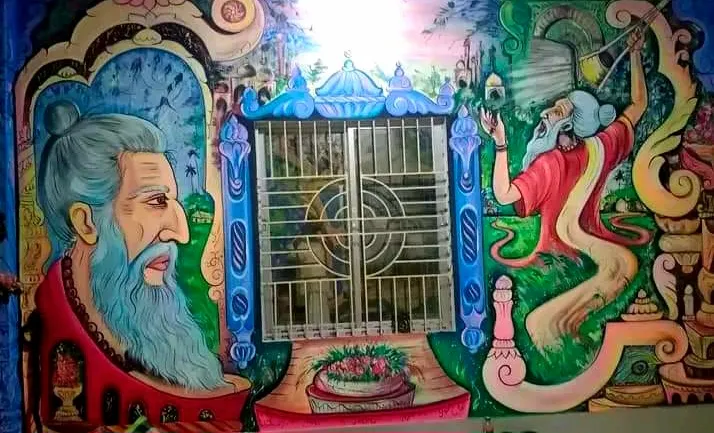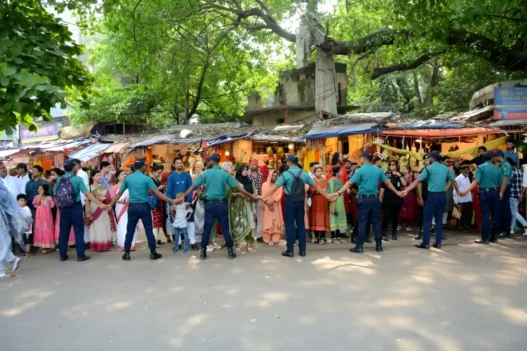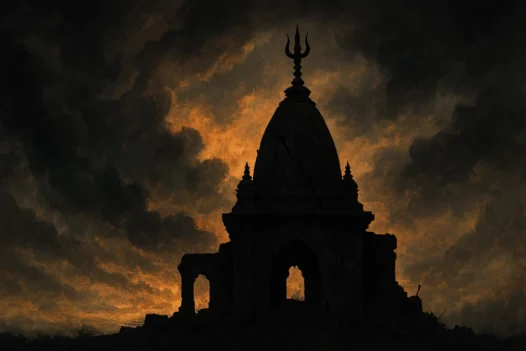By Sanjoy Kumar Barua
In a shocking turn of events, Bangladesh’s cherished ‘Mahati Sadhu Sangh and Lalon Fair’—an annual celebration of the legendary Lalon Shah’s inclusive philosophy—was abruptly canceled in Narayanganj after fierce opposition from religious hardliners.
What was meant to be a vibrant, peaceful gathering of music, spirituality, and cultural unity was silenced by the growing clout of religious extremism in the country.
On November 15, Hefazat-e-Islam, along with local fanatics groups, condemned the fair, calling it “un-Islamic” and threatening to disrupt the event.
Maulana Abdul Awal, a senior leader of Hefazat, escalated tensions, stating, “If this fair goes ahead, we will stop it by any means necessary.”
For years, the fair had been a beacon of peace and inclusivity, celebrating Lalon Shah’s transcendental teachings, which united people across religious boundaries.
However, in the face of growing radical opposition, it became a flashpoint for a larger ideological battle over the future of Bangladesh’s cultural identity.
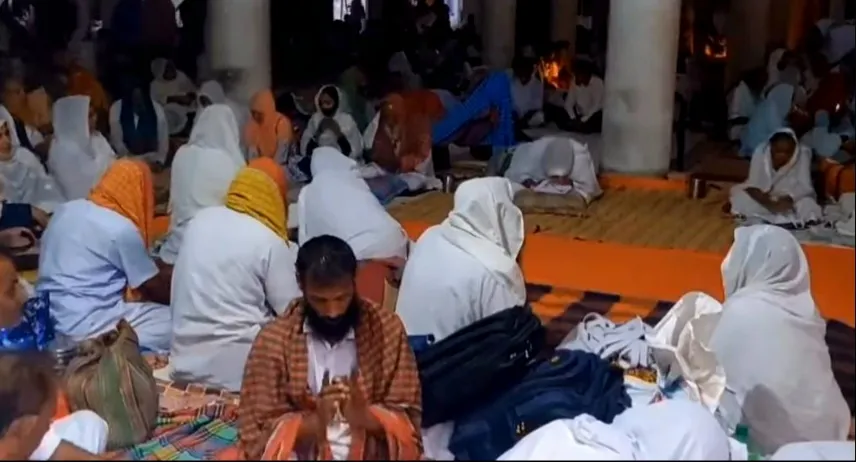
Despite being a longstanding tradition, the fair was unceremoniously canceled on November 21.
The Narayanganj District Administration, succumbing to mounting pressure from extremist groups, revoked the event’s permission.
Deputy Commissioner Mohammad Mahmudul Haque explained the decision by citing escalating tensions, saying, “Allowing the fair to take place could have ignited uncontrollable chaos.”
For Fakir Shahjalal, one of the fair’s main organizers, the cancellation was a gut-wrenching setback.
“This fair has been a symbol of unity for over a decade. To cancel it under threat is an attack on our cultural freedom,” he lamented.
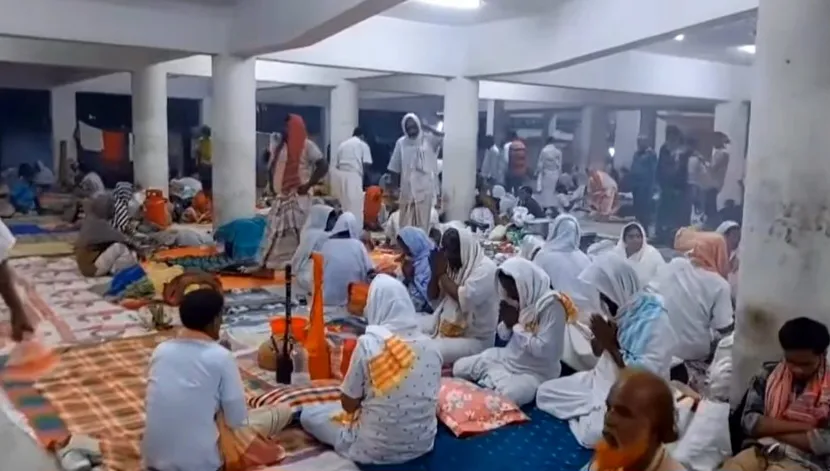
The cancellation of the Lalon Fair is not an isolated incident but part of a larger, disturbing trend sweeping through Bangladesh—a systematic assault on cultural, spiritual, and religious freedoms.
Across the nation, cultural events, shrines, and spiritual practices are being increasingly targeted by extremist groups.
Bangladesh is facing an alarming assault on its spiritual and cultural heritage.
Following a political shift, sacred shrines have been targeted, and vibrant religious celebrations are being silenced.
From Narayanganj to Sylhet, cherished traditions are under attack, and the country’s rich cultural fabric is at risk of being unraveled.
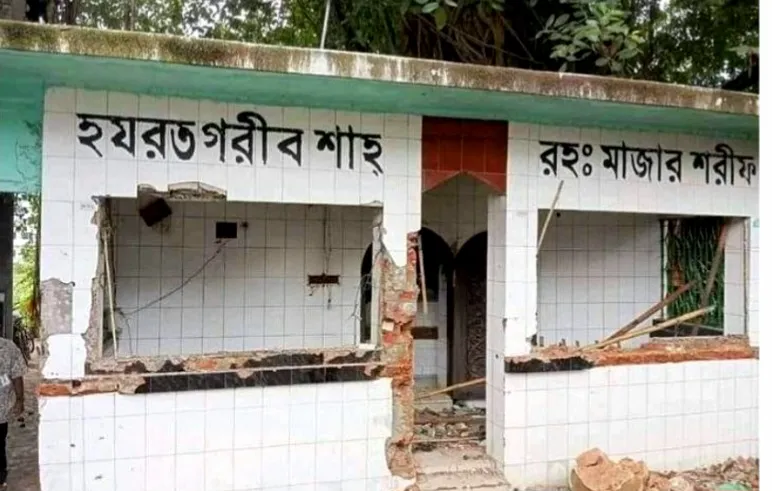
In August, authorities abruptly shut down the Urus celebration at Shah Paran Shrine in Sylhet, a long-standing tradition commemorating the saint’s death anniversary.
This was just the beginning.
On September 6, the Dewanbagh Shrine in Madanpur, Narayanganj, was viciously attacked and set on fire.
Earlier, on August 25, the historic Aynal Shah Shrine in Sonargaon was demolished, sending shockwaves across the nation.
These acts of violence go beyond the destruction of buildings; they strike at the heart of Bangladesh’s spiritual identity.
In an even more disheartening development, music—a cornerstone of religious festivals—was banned during the three-day Urus at Shah Paran Shrine in Sylhet in September.
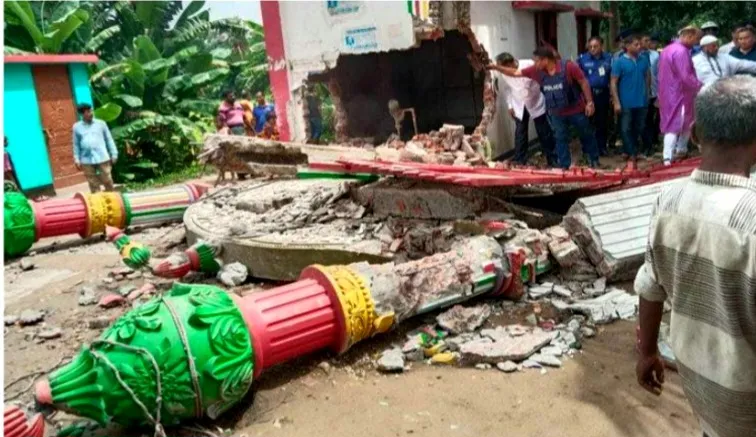
This move to silence music, which has long been a cherished part of these celebrations, marks a deepening cultural repression that threatens the vibrant diversity of Bangladesh.
The destruction isn’t confined to a few shrines.
After the Awami League government’s fall in August, attacks spread across the nation.
Extremists targeted the Ali Pagla and Ismail Pagla Shrines in Sirajganj, continuing the wave of violence against sacred sites.
This growing trend of desecration signals a disturbing shift toward intolerance and the erasure of Bangladesh’s pluralistic, inclusive identity.
These attacks represent a broader shift toward religious extremism and cultural censorship, and experts warn that if such actions continue, they could permanently damage the rich spiritual and cultural legacy of Bangladesh.
The ongoing suppression of traditions like music at religious events and the destruction of sacred shrines could forever alter the nation’s cultural landscape.
Source The Chittagong Hill Tracts

